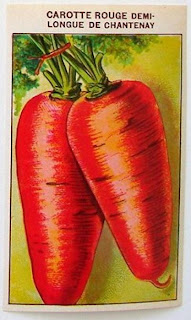 |
| Borage Flowers |
Seed saving is a wonderful hobby, and a great tool for self reliance. By saving seed from our best plants in the garden, we are creating a local version of the plant- one that will do well in your garden.
自家採種(自分で育てた植物から次に植えるための種をとること)は、素晴らしい趣味であり、自給自足の一つの方法です。
自分の畑の中から、特に優秀な苗を選んでその種をとることで、その土地に適正を持つ良い種を作り出して行きます。
There are two main methods of natural pollination- wind and insects.
Wind pollinated plants like corn spread pollen on the wind, and it can travel quite far. So your neighbor's corn may pollinate yours if you aren't careful. That is not such a problem here in Japan, but in the US, many gardener's corn is being contaminated by GM corn pollen carried on the wind.
自然受粉には主に二つの方法、風媒(風による受粉)と動物媒(昆虫等による受粉)があります。
(* 自然受粉には風媒、水媒、動物媒、自動同花受粉がある)
風媒植物の場合、例えばトウモロコシのように風で花粉が拡散し、これは大変遠いところにまで広範囲に渡って飛散することが出来ます。従って、うっかりすると近隣の別の種類のトウモロコシから互いに受粉しあうことになります。日本では、まだトウモロコシの品種の個性の混合以外には問題視されることが少ないのですが、アメリカでは遺伝子組み替え種に交配により汚染されるケースが増加しています。
(*日本では、土地が狭いことなどもあり、特に個人の小さな畑などでは固定種がどんどん交配種となって、元の固定種を採種出来なくなる問題があります)
Insects are more specific. The best known pollinating insects are of course the bees. Bees will scout out your garden, find a mass of flowers that are ready. They also tell their hive where the flowers are, so that a mass of bees can come and do the pollination all at once. But they will visit other flowers too, leading to cross pollination possibilities.
昆虫による受粉は、より特定的です。最も知られているのは、蜂でしょう。蜂たちは、皆さんの庭を調査して適した花園を見付けると、巣に戻って仲間に知らせ、一斉に受粉作業が開始されます。しかし、彼らは方々の花を渡り歩くために、混合受粉の可能性があります。
Here are some basic seed saving techniques.(自家採種のしかた~基本編~)
- Alternate years. Plants in the brassica family (cabbages, hakusai, turnip, etc..) very easily cross. If you are not careful, you can end up with "Kabutsuna" or "Hakubetsu." One way around this dilemma is to save the seeds from your different brassicas at different times. For example, save cabbage seeds on even numbered years, and daikon seed on odd numbered years. 1年おきにとる方法。アブラナ科(キャベツ、白菜、蕪、大根、小松菜など)の植物は、混合受粉しやすいため、注意しないと、雑種(キャベ菜だったり、蕪つ菜)が出来てしまいます。これを避ける一つの方法として、時期をずらして採種する方法があります。例えば、偶数年にはキャベツの種を奇数年には大根の種を採種します。(*その年に採種しない種類の作物は収穫後、開花前に花芽を摘んでしまう(茎を切ってしまう)ことで、その年に採種する種類だけを開花させる方法)
- Alternate day caging. If you have row covers that will keep out bees, you can cover different varieties of plants to keep bees and other insects from exchanging pollen between them. Using cabbage and daikon for example again, on even numbered days, cover the flowering cabbages, and odd numbered days, the flowering daikon. This will keep pollen exchange to a minimum, and allow you to save seeds from two members of the same family in the same year.日によって被いをかける方法。虫除けの寒冷紗などの被いを用意して蜂などの昆虫による混合受粉を避けることが出来ます。例えば、キャベツと大根の場合、偶数日にはキャベツに、奇数日には大根に覆いをかければ、混合受粉の可能性を低く保つことが可能となり、同じ年に複数種類のアブラナ科の種の採種が出来るようになります。
- Hand pollination. If you go out very early, you can pollinate some plants like squash by hand. Then close the flower's petals with a piece of gum tape to prevent insects from adding other pollen to the mix.人工授粉。早朝に畑に出掛けて、手動で受粉させます。その後、昆虫による混合受粉を避けるために、花ビラをテープでとめて閉じておきます。(*受粉させない花は摘んで取り除く)
- Distance. If you have a lot of space, you can grow different varieties far apart and reduce the chance of cross pollination.距離を置く方法。もし広大な土地を持っているなら、混合受粉の可能性がある植物は離れた所に植えることが出来ます。
Thanks to Rinoyu for the excellent translation!




